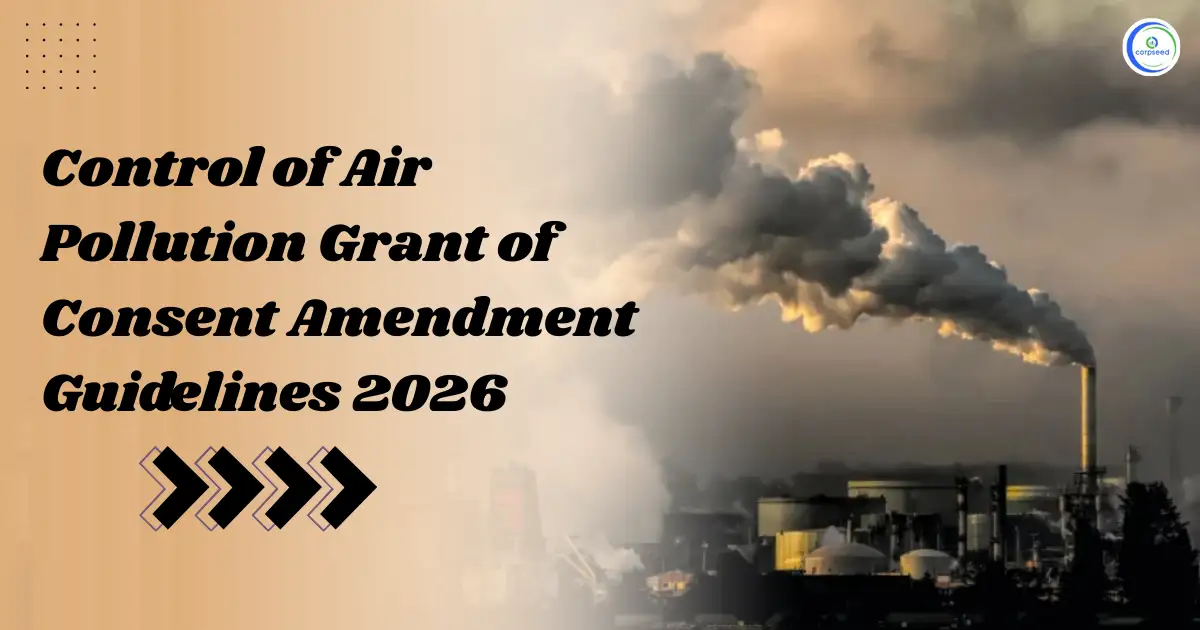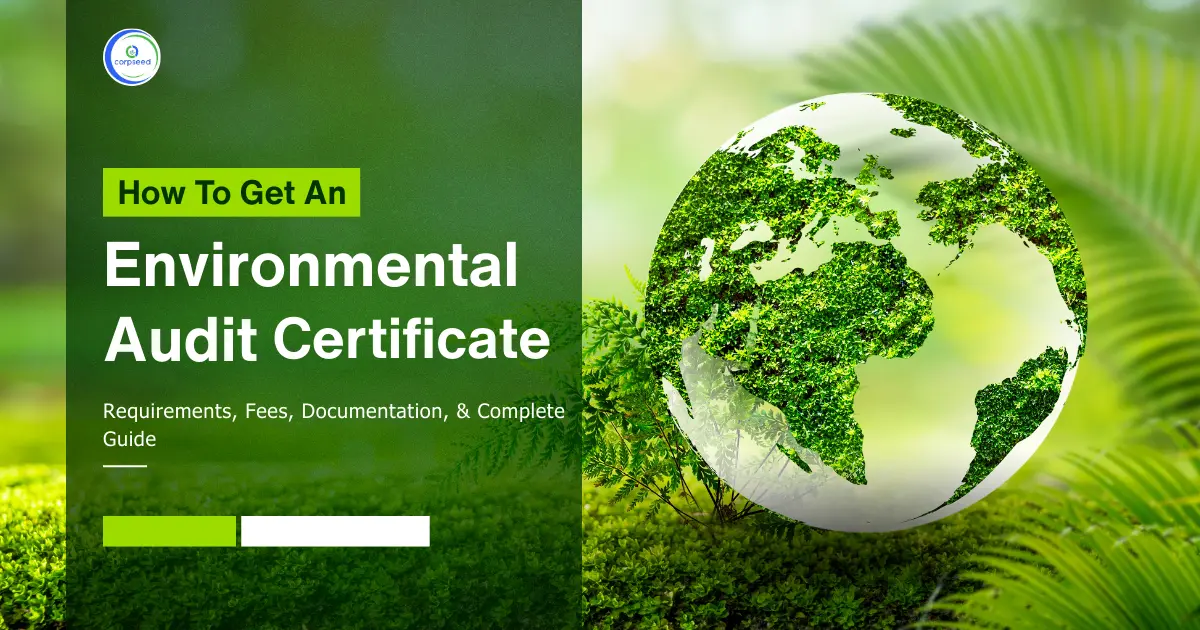Introduction
To combat the ubiquitous threat posed by persistent organic pollutants (POPs), regulatory authorities have put in place the Regulation of Persistent Organic Pollutants Rules, 2018. This is an important environmental framework. These regulations, which were put in place by global accords such as the Stockholm Convention, are intended to regulate and restrict the manufacture, consumption, import, export, and disposal of persistent organic pollutants within India. The restrictions target a particular class of dangerous chemicals that pose serious dangers to human health and ecosystems because of their resilience to environmental degradation.
Table of Contents
--------------Blog Contact Form-------------
The identification and classification of POPs, the setting of emission standards, and the encouragement of ecologically friendly behaviors are among the important clauses. The regulations place a strong emphasis on using strict monitoring, reporting, and enforcement procedures to reduce and eventually eliminate POPs. Industries handling POPs must abide by these standards to ensure a thorough and coordinated approach to environmental protection. The regulations support India's commitment to biodiversity preservation and worldwide environmental sustainability by tackling the problems caused by persistent organic pollutants.
Importance of The Regulation of Persistent Organic Pollutants Rules, 2018
For the following main reasons, the Regulation of Persistent Organic Pollutants Rules, 2018 is essential:
- Environmental Protection
The regulations are essential for protecting the environment since they address the negative impacts of persistent organic pollutants (POPs). These substances may harm ecosystems over time, affecting soil, water, and air quality, among other things.
- Human Health
POPs can build up in the food chain and pose a risk to human health. The rules support public health, lower the incidence of diseases linked to certain pollutants, and lessen the health hazards associated with exposure to them.
- International Commitments
The regulations show India's adherence to international environmental agreements since they are in line with the Stockholm Convention on Persistent Organic Pollutants. This promotes global collaboration and aids in a well-organized endeavor to tackle environmental problems that cross international borders.
- Biodiversity Conservation
By reducing the effects of POPs on different species, the regulations contribute to biodiversity conservation. These laws assist in reducing the harmful impact that several persistent organic pollutants have on ecosystems, as they have been connected to negative consequences on wildlife.
- Promotion of Sustainable Practices
The rules promote the use of ecologically friendly procedures in POP-related enterprises. As a result, sustainable growth is aided by the creation and application of greener technologies and procedures.
- Monitoring and Compliance
The regulations create a structure for reporting and monitoring systems, guaranteeing that sectors follow predetermined guidelines. Making it easier to regulate the creation, application, and removal of persistent organic pollutants lowers the risk of environmental contamination.
- Long-term Impact
The regulations seek to have a long-lasting effect on environmental quality by concentrating on POP reduction and removal. By being proactive, we may ensure a healthier and more sustainable future by preventing the persistence and bioaccumulation of dangerous pollutants.
The Regulation of Persistent Organic Pollutants Rules, 2018 is a crucial tool for reducing the threats that persistent organic pollutants (POPs) pose to the environment and human health. It also helps India adhere to sustainable practices and align with international environmental standards.
The Regulation of Persistent Organic Pollutants Rules, 2018: Highlights
While exercising its power as conferred under Sections 3 and 6 of the Environment (Protection) Act, 1986, the Central Government laid down the Regulation of Persistent Organic Pollutants Rules, 2018 on 29th August 2017.
The key highlights of the Regulation of Persistent Organic Pollutants Rules, 2018 are mentioned below:
- The Rules prohibit the trade, import, export, and use of seven chemicals namely:
- Chlordecone,
- Hexabromobiphenyl,
- Hexabromodiphenyl ether and heptabromodiphenyl ether,
- Tetrabromodiphenyl ether and pentabromodiphenyl ether,
- Pentachlorobenzene,
- Hexabromocyclododecane, and
- Hexachlorobutadine.
- The Rules discuss the occupier to not drain or discharge chemicals, dispose of waste, and use chemicals for scientific purposes.
The Regulation of Persistent Organic Pollutants Rules, 2018: Objective
The purpose of the Regulation of Persistent Organic Pollutants (POPs) Rules, 2018 is to control the risks that persistent organic pollutants pose to human health and the environment. To safeguard the environment and public health, these regulations primarily aim to control and limit the production, use, import, export, and storage of persistent organic pollutants.
Highly hazardous compounds known as persistent organic pollutants can linger in the environment for long periods, causing bioaccumulation and serious dangers to both human health and ecosystems. The regulations aim to implement systematic steps for the phased-out removal of these contaminants. This entails establishing acceptable level limitations, encouraging the adoption of safer substitutes, and putting in place appropriate procedures for disposing of trash that contains POPs.
The regulations also stress the necessity of awareness-raising and capacity-building programs to inform different stakeholders about the risks connected to persistent organic pollutants. The Regulation of Persistent Organic Pollutants Rules, 2018 supports international efforts to reduce the harmful effects of these dangerous substances and promote a more sustainable and healthy environment for current and future generations by adhering to international commitments and protocols.
Conclusion
In conclusion, by addressing the ubiquitous hazards posed by persistent organic pollutants (POPs), The Regulation of Persistent Organic Pollutants Rules, 2018 constitutes an essential step towards preserving the environment and human well-being. The regulations emphasize a thorough approach to controlling POP production, usage, import, export, and storage, with a focus on reducing its harmful effects.
These policies support international efforts to phase out and eliminate POPs by establishing acceptable levels, encouraging the adoption of safer alternatives, and putting responsible waste disposal methods into place. The Regulations give communities' health and safety - which may be impacted by these dangerous substances either directly or indirectly—a higher priority than only protecting ecosystems.
Because of this, the Regulation of Persistent Organic Pollutants Rules, 2018, which emphasizes environmental stewardship and conveys a shared commitment to addressing the issues raised by these dangerous and persistent substances, is essential in fostering a sustainable and healthier future.
This portion of the site is for informational purposes only. The content is not legal advice. The statements and opinions are the expression of author, not corpseed, and have not been evaluated by corpseed for accuracy, completeness, or changes in the law.
BOOK A FREE CONSULTATION
Get help from an experienced legal adviser. Schedule your consultation at a time that works for you and it's absolutely FREE.


.webp)






